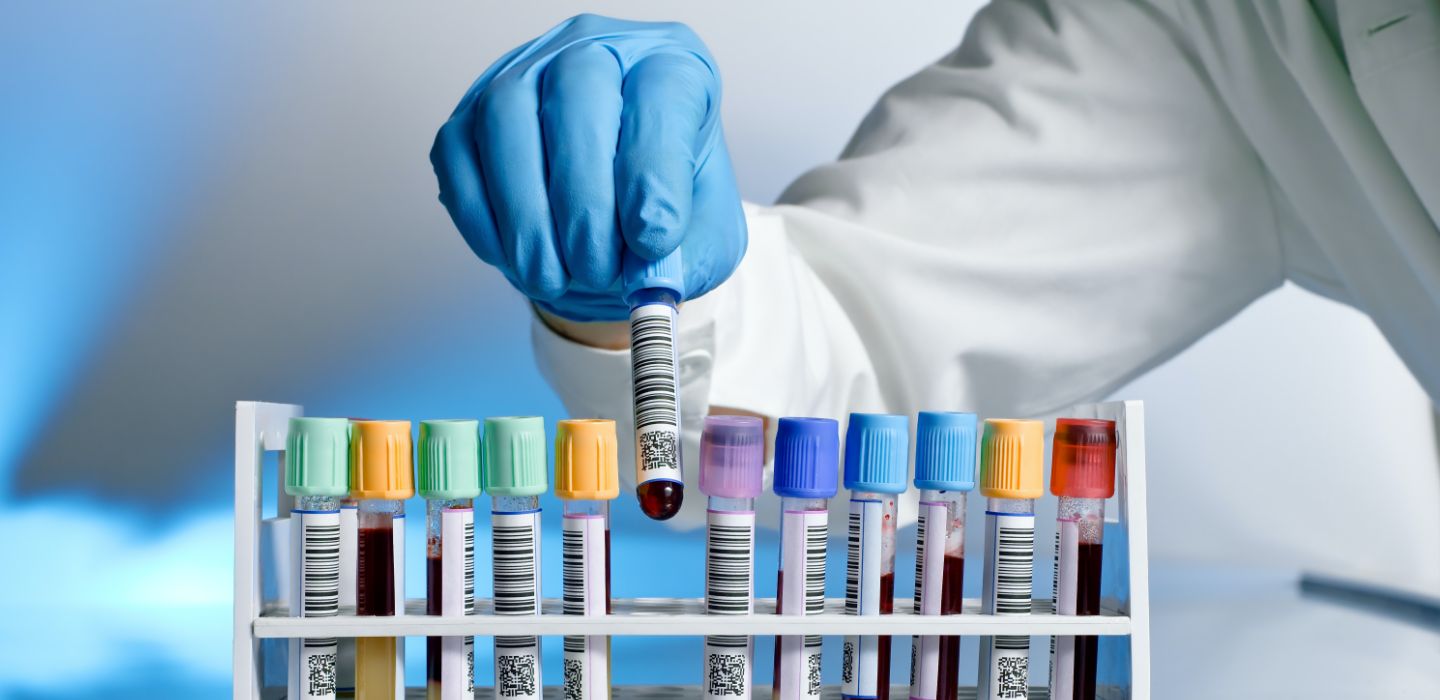CRICOS Code 087942A
Students must complete the following core units and one elective with a Course Weighted Average of 60%.

Stage 1: 2-3 Trimesters (8-12 months)
Stage 2: 2 Semesters (12 months)
Curtin Bentley
Stage 1 = $17,800 ($2,225 per unit)
Stage 2 = $18,800 ($2,350 per unit)
Additional costs may apply depending on your course and stream
Stage 1 = $27,000 ($3,375 per unit)
Stage 2 = $39,800 ($4,975 per unit)
Additional costs may apply depending on your course and stream
Laboratory Medicine is divided into six major areas of study: clinical biochemistry, haematology and blood transfusion serology, histopathology, diagnostic cytology, medical microbiology, medical biotechnology and immunology.
All disciplines involve the study, examination and analysis of body fluids and tissues to provide information essential for the diagnosis and treatment of disease.
Bachelor of Science (Laboratory Medicine)
Students must complete the following core units and one elective with a Course Weighted Average of 60%.
Students must complete the following core units with a Course Weighted Average of 60%.
Semester 1
| Code | Title |
|---|---|
| FBP1004 | Foundations of Bioscience Practice |
| HSF1000 | Human Structure and Function |
| FCB1007 | Fundamentals of Chemistry for Biosciences |
| FBS1000S* | Foundations of Biomedical Science* |
Semester 2
| Code | Title |
|---|---|
| EPD1001 | Foundations of Biostatistics and Epidemiology |
| ICHB1006 | Indigenous Cultures and Health Behaviours |
| ISA1001S | Integrated Systems, Anatomy & Physiology |
| MGB1000S* | Molecular Genetics & Cell Biology* |
*Service Taught Units are units where Curtin College students join Curtin University students in the same classroom. Such units are taught by university staff and Curtin College students will be enrolled as Curtin University students. Curtin University Policies and Processes will apply to these units.
In this unit, students will be introduced to the application of academic standards and development of skills required for studying at university. Introduction to requirements for professional, safe and accurate laboratory practice. Students will learn laboratory techniques to apply introductory Chemistry knowledge, and practise as emerging scientists capable of working individually and in teams. Introduction to ethics in the context of human and animal research. Introduction to careers for health scientists.
Anatomical organisation of the body and the relationships between body systems and cells. Human requirements for metabolism and life. The structure and function of the body. Basic control and interactions of the circulatory, respiratory, digestive and excretory systems. Primary defence against microorganisms. Mechanisms for growth, repair and reproduction.
This unit is a practical and theoretical exploration of the fundamental principles of chemistry as they apply to the biosciences, and with a focus on human systems. This unit will provide you with the appropriate foundation for your future studies in biochemistry, molecular genetics, pharmaceutical science, or cell biology.
This unit is an introduction to the theory and application of disciplines in the biomedical sciences: microbiology, immunology, histopathology, haematology, biochemistry and molecular genetics. Themes include the basic theory of the cellular and molecular components that form the foundations of biomedical science, the investigation of disease and infectious agents, occupational health considerations, the use of specialised equipment and testing of biological samples in a professional manner. The role and function of medical and research laboratories will also be explored.
Students critically appraise public health and clinical epidemiological research literature and perform basic statistical analysis. You will encounter basic statistical and graphical description and analysis of epidemiological and biomedical data with appropriate graphs, tables, and summary measures; statistical inference and statistical hypothesis testing applied to problems in health and clinical medicine using parametric and non-parametric tests; calculation of common epidemiological measures of disease frequency and association such as incidence rate, prevalence, attributable risk, risk ratios and odds ratio; role and significance of inferential statistics such as confidence intervals and probability
In this unit students will examine culture and diversity within local, national and global, Indigenous populations; impacts of specific policies and historical events on Indigenous Australians and their effects on health and health care access. Students will analyse health outcomes of Indigenous Australians and explore underlying social determinants, and how health professionals can work collaboratively in consultation with Indigenous individuals, families, communities and organisations.
An integrated approach to the study of body systems correlating structure and function of the musculoskeletal, cardiovascular, respiratory, digestive, urinary and reproductive systems together with their endocrine and neural control. Students will investigate the interaction of these systems in normal body functioning and in selected altered body states.
In this unit, students will explore the fundamental concepts of molecular and cell biology, including the central dogma, traditional Mendelian, and modern molecular genetics. Topics will include DNA structure and replication; regulation of gene transcription; protein synthesis and post-translational modification. Cell structure and function will also be explored. The laboratory component allows students to acquire skills to perform experiments in molecular and cell biology. This unit provides the background knowledge necessary for entry into second year units.